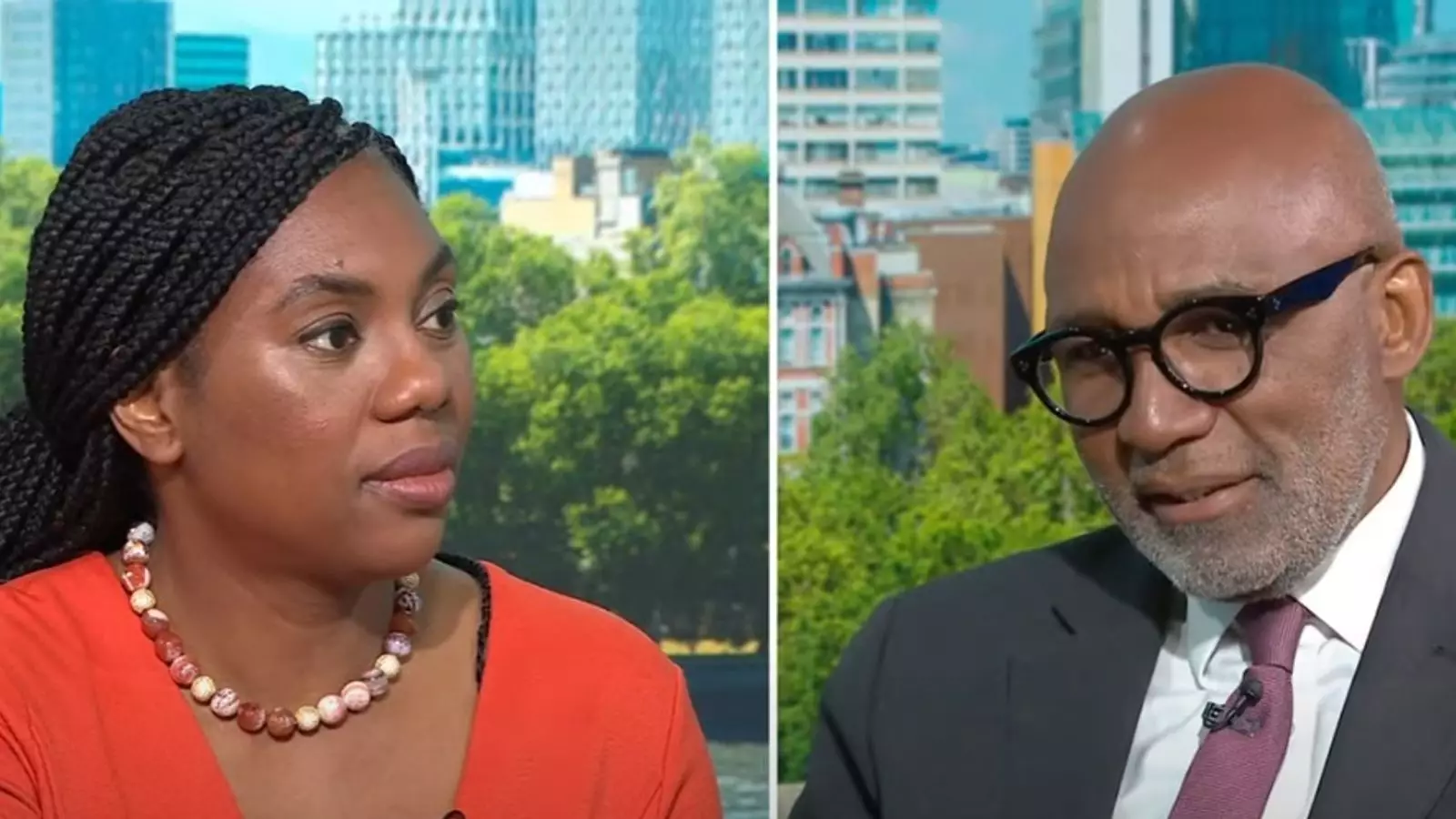In the tumultuous arena of British politics, the next council elections signal a pivotal moment for the Conservative Party under Kemi Badenoch’s leadership. The teetering landscape reveals a notable willingness to entertain local coalitions. However, the specter of Nigel Farage and his party, Reform UK, looms large, casting a shadow over potential alliances. Badenoch’s attempted navigation of these treacherous waters reflects both a pragmatic approach to local governance and a desire to maintain ideological integrity at a national level.
Badenoch’s insistence on steering clear of any national pact with Farage’s party reveals an acute awareness of the deeply polarized electorate. The Conservatives are at a crossroads, grappling with their identity as the once-dominant force in British politics. The move to potentially align with Reform at the local level, while vehemently denouncing a national coalition, showcases her strategy of pragmatism infused with caution—a classic tightrope act that many party leaders have undertaken in their quest to appeal to the grassroots while keeping the broader party faction intact.
The Electoral Landscape: Risks and Rewards
As the council elections approach, expectations are extraordinarily subdued. Badenoch’s admission that the Conservatives might lose every council they contest demonstrates a stark recognition of the party’s dwindling support in traditionally conservative strongholds. Her candidness is refreshing yet disheartening; it reflects an acknowledgment that voters are disillusioned and searching for alternatives. The past doesn’t seem to be a reliable compass for the future, especially with the recent shift in political dynamics brought on by the pandemic and subsequent economic crises.
The contests involve 23 councils—markedly situated in regions that had been bastions of Conservative power. The implications of these elections are profound; a significant loss could mark an irrevocable shift in the political balance of power, enabling opposition parties to tighten their grip. Local elections often serve as barometers for national sentiments, and with the Labour Party sensing a potential resurgence, the risk for Badenoch’s Conservatives has escalated into a matter of survival.
Coalitions: Necessity or Deception?
Badenoch’s statements reveal a tension within the party between the necessity for coalition-building and the risk of being branded as opportunistic. While she insists that any coalitions formed should prioritize the interests of local communities over pre-arranged political chess moves, the insinuation of “stitch-ups” hovers ominously. The political narrative is complicated further by Robert Jenrick’s controversial remarks suggesting a coalition with Reform UK—a move that could resonate poorly with traditional Tory voters who are wary of compromising their values.
The question remains: Is coalition politics a pragmatic necessity in today’s fragmented landscape, or does it signal a betrayal of principles? Badenoch’s narrative leans toward pragmatism, but the implications of her decisions could plunge the party into further ideological questions. Political doctrines cannot be a mere buffet chosen selectively by leaders craving electoral success; solid principles must underpin any alliances if they are to be acknowledged by the electorate as genuine and reliable.
A Party in Flux: The Search for Identity
In the swirling tides of change, the Conservative Party, under Badenoch’s leadership, appears to be in a constant state of flux. With rival factions like Reform UK forcing reevaluation of the party’s identity, she finds herself in a precarious balancing act—attempting to engage disenchanted voters without alienating the party’s base. The paradox involved in aligning with parties that have varying degrees of ideological proximity sketches a complicated picture.
Badenoch’s leadership style, while progressive, often invites scrutiny. Is she catering to the whims of pragmatic politics, or is she steering her party towards a future that could risk its core values? The nuances in her rhetoric suggest a cautious yet deliberate attempt to reclaim Conservative credibility without sacrificing essential tenets.
Amidst the Echoes of Political Grit
This election cycle serves as a critical moment of reflection for Kemi Badenoch and her party. The decisions made will reverberate far beyond local councils and will inevitably impact the nation’s political fabric. As voters head to the polls, the significance of their choices extends into the broader conversation about governance, representation, and the essence of democracy itself. It entwines the paradox of seeking collaboration while asserting individualistic principles—an inevitable tension faced by the Conservative Party as they grapple with their identity in efforts to remain relevant amidst a landscape veering toward progressivism and inclusivity.
In these complex dynamics, the question inevitably arises: Can the Conservative Party emerge transformed and revitalized, or is it destined to flounder amidst the obscured waters of coalition politics? Only time will reveal the answer, and voters hold the power to determine the future trajectory.


Leave a Reply